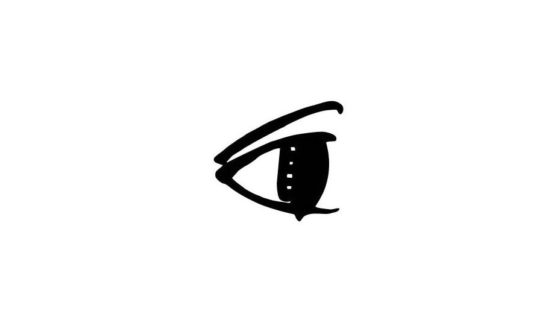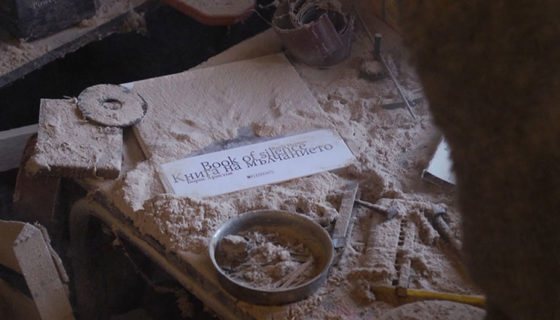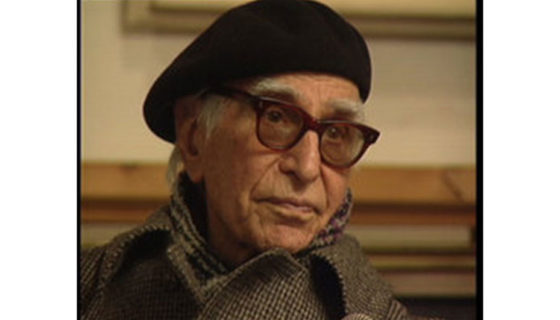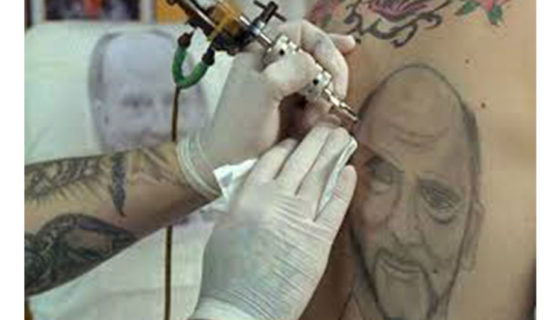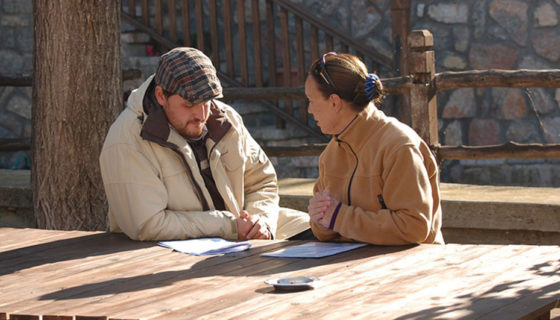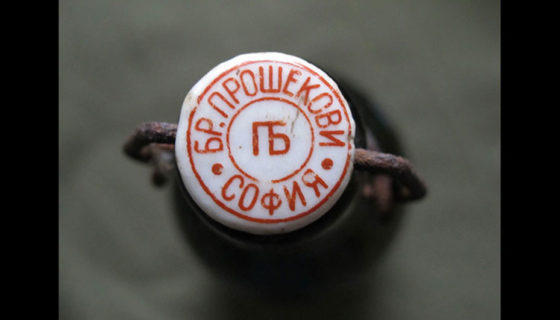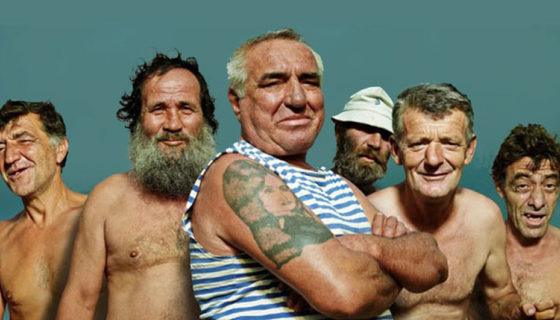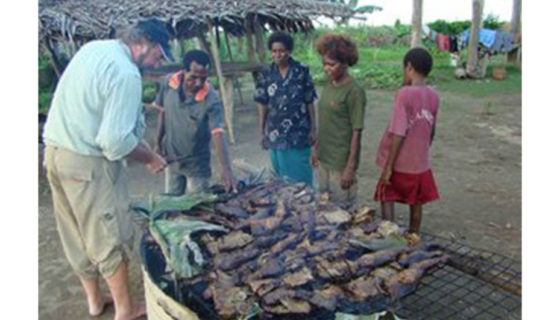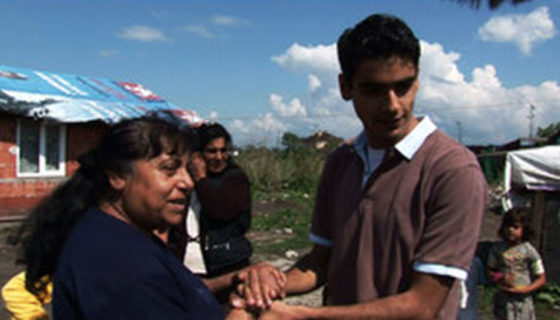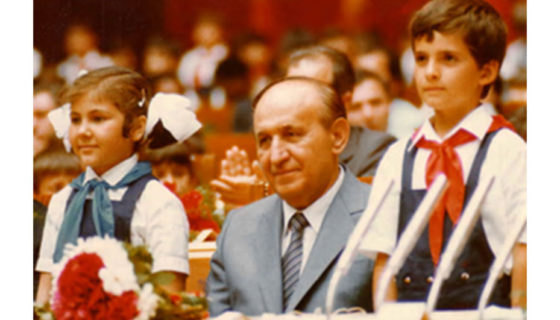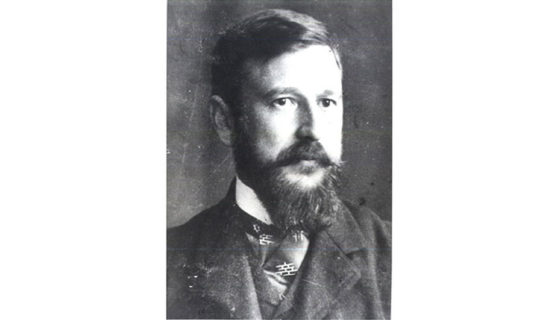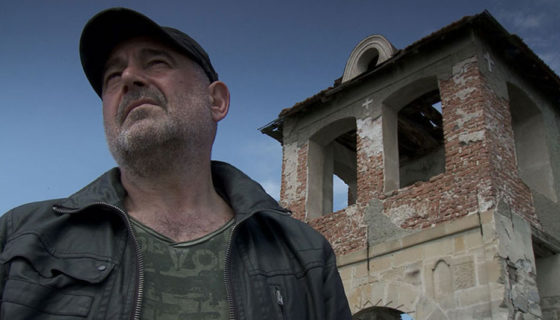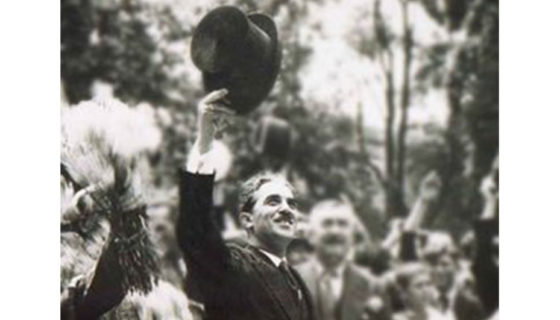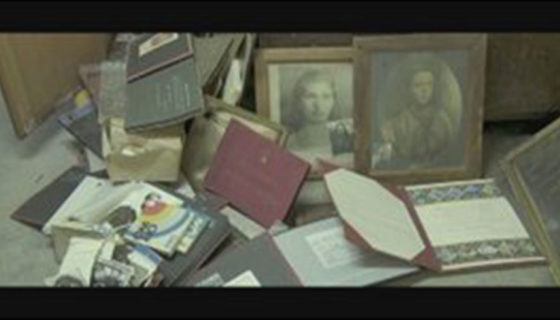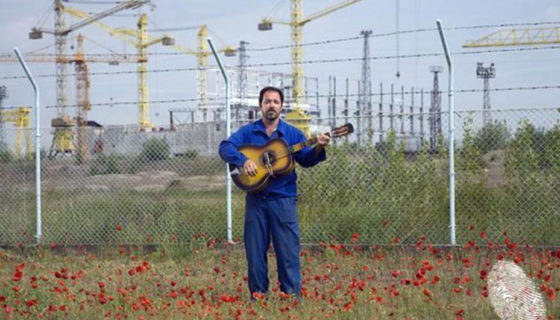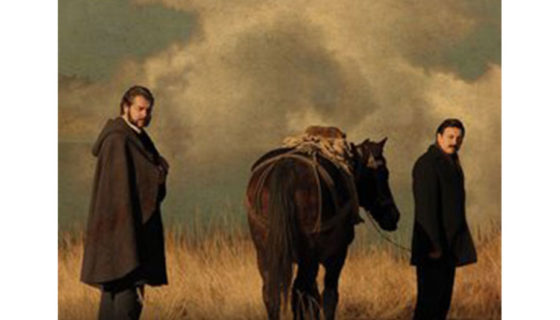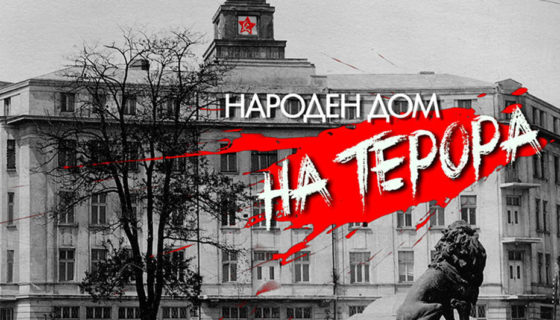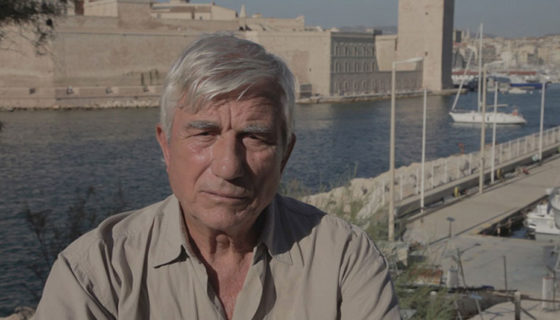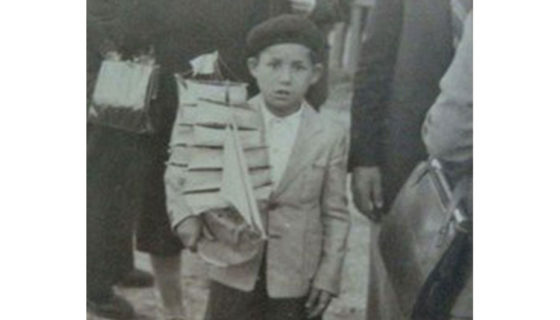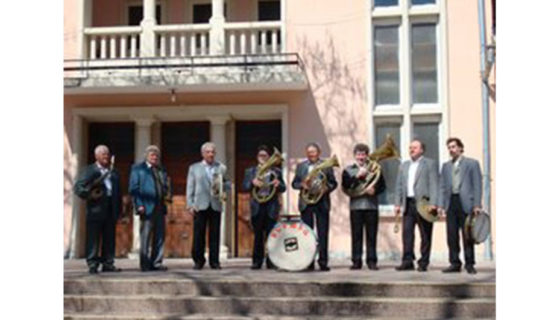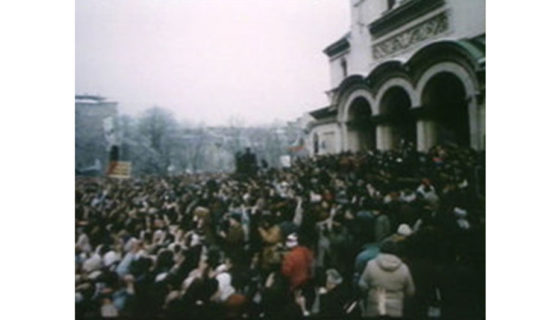- In 1925 a group of the Military Centre of the Bulgarian Communist Party blew up the Cathedral St. King (now St. Nedelya). As a result 150 people got killed and many more – injured. What aims did these people pursue? What should we call them today – mad, insane, terrorists, idealists?... It is time to realize the bitter truth that their aim was unrelentingly obscure.
- The love affaire between a Bulgarian man, Yurdan Stefanov and a Turkish girl, Saafet Mehmedova was the epicentre of the conflict. This love story took place in a wrong moment in terms of the “big-time politics”: on the eve of a very important visit of King Ferdinand of Bulgaria to Istanbul. The visit was supposed to lead to the Sultan’s reaffirming the independence of Bulgaria and to resolve outstanding financial issues between Bulgaria and Turkey.
- A film about the value of words in an age of information abundance; about the troubled communication and imbalance between silence, talking and sounds, but also about how human speech shaped and developed and what should be done to reconcile with silence, turning it into Word.
- The past haunts the present, fact meets fiction, and myth rivals reality to tell the fascinating story of Simeon Saxe-Coburg-Gotha, from his exile as a boy-king through his glorious return as a republican politician to his fall from grace in one of the greatest experiments of democracy today.
- The film focuses on the most important processes and events in the political, economic and social life of Bulgaria after the outbreak of the WWII until the present day. A wealth of archive material has been used, as well as the most interesting moments from Trial No.1 against Todor Zhivkov, the former Head of State. The trial is a departure point for a trip back in time and an analysis of the historical processes and events that have determined Bulgaria’s destiny. What happened, why are we like that, where are we going today? Asking those questions is necessary in order to avoid history’s starting a painful replay of the past…
- The documentary about a famous figure of the period of Bulgarian National Revival, Dobri Voinikov is an attempt at comprehending him from a contemporary point of view. Modern staging of excerpts of his works, played by young people, connects the present day of this country to its past and the role of the eminent teacher and playwright.
- A film about the former Communist Party House in the center of Sofia, with its huge spaces and endless corridors, its granite, marble and carved oak desks. Its five-pointed stars, hammers, sickles… And emptiness. The people who commanded our destinies are no longer here. A well-known sniggering laughter hounts the silent offices and corridors. All of this is situated on top of the ruins of the busiest commercial part of pre-war Sofia, on top of the ruins of countless altered human lives. However, everything passes. Lenin and Dimitrov are down from the piedestals. The Citadel, tarnished by the smoke of an incendiary attempt, is shaded by young trees…
- The film traces the history of the Third Bulgarian State from 1879 till 1947 and observes the application and the violation of the Turnovo’s Constitution and the events that followed. The film tries to relate the legal basis of parliamentary democracy to the historical facts and goes deeper into the dramatic history of Bulgaria from the last quarter of the XIX century and the first half of the XX century.
- The film tells the stories of several old ladies, veterans of the WWII, in their eighties, who want the last years of their lives to make difference; stories of solitude and hope, of the faults of our time, of the unquenchable striving for happiness.
- This is a cinematographic tale of the days, nights and the years in a Convent. It is a documentary of the other point of view, the other life, the one we haven’t chosen but we can see our sinful and divine existence in this world reflected. It is an attempt to go deeper into human psychology and community laws, looking for a metaphoric resemblance to the model of our ailing society. A film about guilt and redemption, about the choices we make and the meaning of existence. A cinematographic essay on the philosophy of devotion and the healing power of faith.
- A gory epic of the late 10th and the early 11th century brings up a tricky and vital issue for the contemporary Bulgarians and Macedonians of their common origins, shared hard history and common future... Disputes would only gain momentum in 2014 with the 1000th anniversary since the Battle of Kleidion and King Samuel's tragic demise...
- Millions of years ago dolphins left the dry land for the depths of the oceans. Close your eyes and imagine for a moment… The seven 20 minutes episodes offer a harmony of colour and movement in the vast expanses of the Great Barrier Reef off the shore of Australia.
- Bulgaria, 1944. The film traces the activity of the Bagryanov – Mouraviev-led cabinets, tells about prominent historical personalities from that time, their destiny in the wake of September 9th, 1944.
- The documentary tells both the story of the Proshek brothers and delves deep into the atmosphere of the early 20th century, a time, when Bulgaria used to be an attractive place for career development and investing. This is the story of hard-working and enterprising people, no matter where they come from, a story about the long life relations between West and East Europe. This is also a story about memory, about its fickleness and inconsistency; about the necessity to remember for there is no future without remembering the past. This is a story about unkind fate and the efforts to confront it staying true to yourself.
- The film is not an attempt to just follow the storyline of Emilian Stanev’s life; it’s rather a spiritual biography of the writer; a glimpse into the demons raging in his soul; reflections on Bulgaria’s ill-starred history; contemplation over the never-ending Bulgarian fallacies, illusions and contradictions.
- Wiener waltzes and ridiculous historical analyses… The war usually harms the people’s life, but in the family of Ivan Chuchurigin the WWI is a recollection of something marvelous. His son and the village historian tell us about the incredible love story of Ivan. Is it true or is it a beautiful fiction?
- Step by step archaeologists reveal the secrets of Thracian tombs – impressive burial chambers that have preserved our forefathers’ idea of the world of gods and the immortality of the human soul. The creative spirit of the artist and his striving for perfection, built into the stone, have survived over the ages.
- A French man, Abel Rambert sees a drawing by Pascin for the first time in 1948 and falls in love with his art. This drawing predestines the future of this man. He becomes not only a collector and a gallery owner but also the best expert in Pascin’s art in the world.
- The end of the 9th and the beginning of the 10th century A.D. The literature created in the major cultural centre of Veliki Preslav, in the Old Bulgarian Language, helps spread the cultural achievements of Christianity. By means of visual materials from Veliki Preslav, Constantinople and the Madrid Library; the correspondence between Patriarch Nicholas I the Mystic and Tsar Simeon; Constantine of Preslav, John the Exarch and other men of letters’ written works, this film reminds of the actual contribution of Bulgarians to the world cultural process.
- Man to nature is what cancer is to man. Is man compatible with хature? We should not be trying to restore the old natural balance. We should be trying to create a new harmony between the urban world of man and the Great Wild World. If we want to be a race with a past we have to look into the future. God has not granted us the power to rule the elements. We, therefore, have to achieve harmony with them.
- This is a film about the culture, religion and the ancient traditions of the Kazulbashka muslim community in Bulgaria in which woman is the equal to man. It is an entertaining story of the common pagan root of the religions, tolerance and eternal human values.
- filmarchive cinema. The cabin is 1.30m at 1.50m. This tiny space has accommodated “the whole of her Italy”, while Nelly has never actually been in Italy. The film shows Nelly’s tragically belated meeting with Italy – when she’s 78 years old, visiting the places she has only seen on film. She’s finally with “her princes” Ettore Scolla and Mario Monicelli. With a tender and merciless sentimentality the film reveals this belated dream come true.
- Deliormana is a place in North East Bulgaria. The ethnic and religious problems which have accumulated over the years are reflected deeply in the hearts of the people in this region. The question is who does this ancient land of the Thracians belong to now? In its examination of the visitors to this holy place the film suggests that everyone has the rights to worship their own god in their search for religious and ethnic tolerance.
- The Last Black Sea Pirates swim in testosterone and rugged tenderness in a land of wilderness and legends, far from civilization. For 20 years, Captain Jack The Whale and his crew have been drinking, dreaming and hunting for a treasure buried in the gully of Karadere, the pristine beach they call home. But someone else has got wind of Karadere’s treasures. When news of imminent change begin to find its way to this remote oasis, the pirates' world begins to unravel. Doubts erode the foundations of trust, conflicts brew, tensions are on the rise. In this crisis, emerges a contemporary fairy tale about the treasures we hunt and those that we find.
- A carpenter, a retired teacher and a machine-operator attempt at squaring scores with the mob. The three of them are on trial at present. What are the reasons for people to leave the passive law and authorities behind and to search for revenge and protection?
- The craving for freedom makes Lyubo flee Bulgaria. Running away is rather a matter of instinct than choice. Lyubo manages to get beyond the border line during a popular gathering at Kalotina. He crosses the whole territory of former Yugoslavia experiencing some incredible adventures and after staying in a camp in Italy, Lyubo heads for Australia where he lives for some time being involved in risky crocodile hunting. He comes across the book “The River of Gold”, which is the turning point in his life. Freedom and gold are Lyubo’s destiny, and as long as he lives, he will be part of this adventure.
- Ilia was a baby, when he was given up for international adoption, while our crew was shooting at an orphanage in 1993. Two decades later the young Frenchman arrived in Bulgaria to reunite with his mother and seven siblings. The film is an account of these moments overbrimming with emotions, amazement and mistrust, a surprise of the clash of cultures... The documentary poses also questions about what has happened to Branimira-Брани, John-Petko, Natalie-Danka and Joseph-Boian, Maria and Dian, who were adopted by foreigners before our eyes, which was captured by the camera. Bulgaria is the sole EU Member-State, giving children for international adoption.
- At one of the first demonstrations after November the 10th 1989, a man carried a long stick with the portrait of Todor Zhivkov upside down. In this ritual act of desecration we can find remains of the ancient craving for revenge of the slave to his fallen master that awakens with each social cataclysm. An era that some historians called the “Zhivkov era” was going away. As representatives of an immature civil society we tried to blame the twisted socialist image on the mirror we all looked at. That mirror was called Todor Zhivkov.
- Was Dr. Christian Rakovsky a statesman, a politician or a diplomat? Or was he more of a statesman than a politician or more of a diplomat than a statesman and a politician? Or was he all in one? Who was he: A Romanian national of Bulgarian extraction, educated in France and befriending Russians? The documentary provides answers to all these questions and many more.
- The world was shocked by the actions of a single Bulgarian. A month after the death of Charlie Chaplin, Kuncho Kunchev disinterred his body. Was that good or was it bad, or was it indeed the thruth?
- A journey through space and time, beginning in the ninth century AD and continuing well into this century's echo of Cyril and Methodius' mission. Why is their work so significant to all Slavic nations in crucial moments of their histories, being relevant even today? Who is St Methodius: an assistant and co-worker of his younger brother Constantine Cyril the Philosopher or is he the real Baptist of Bulgarians, Slovaks, Czechs and Poles? Researchers from different countries, children and artists, custodians of churches and legends are searching for answers in this journey following in the footsteps of the Holy Brothers and the letters invented by them.
- The film tells the story of Engineer Ivan Ivanov, the longest-ruling and most successful mayor of Sofia, who was in office in the most turbulent times from 1934 through 1944. During his terms, Sofia was known as the “Little Brussels” and the “Vienna of the Balkans”. is a documentary about the dramatic and extraordinary life of a person who preserved his morals and dignity despite all hardships and vicissitudes he had to endure. However, this film is not simply a depiction of the life story of an exceptional character. It also focuses on the role of the individual against the backdrop of major historical events. It delves into the issues of what price has to be paid for withholding one’s personal choice and whether it is possible to abide by one’s principles in a time when this may turn into an excessive burden.
- Lyubo is a 53-year-old and he can’t sing as he used to. He is not welcomed in the band anymore. Todor is a lonely, 38-years-old bachelor. Only when he plays his guitar in the streets he forgets his solitude. Both Lyubo and Todor are part of a six-member band of blind street musicians. Shall the band get rid of Lyubo? Shall they go to the seaside to earn some money… or shall this further exhaust their tight budget?
- Gabrovo. Two houses, almost next to one another. A father, and two brothers who never met. The younger was born 10 years after the execution of the elder. But both have the same name – Mitko Trifonov Palauzov. The film explores the history of the child and the propaganda story that ruined the life of the living man, who had to go by the name of his dead brother for half a century. This is a film about lying to the dead and the effort of the living brother to make at least his life real.
- Poised on the Danube River in northern Bulgaria, the town of Belene suffers from an identity crisis. Between 1949 and 1959, a nearby island was the notorious major Communist forced-labour camp. Currently Belene is twenty-five years structing another project that, if actually finished, promises to be an economic boon: the country's second nuclear power plant. Andrey Paounov's bizarre, tragicomic documentary about the dark past that haunts this sleepy, mosquito-plagued community.
- This is a documentary about the first Bulgarian book of international significance, which managed to draw the attention of 19th century scholarly Europe towards Bulgaria and its history. Ever since it appeared, it was claimed to be a mystification, and all the inquiries and the research of dozens of enlightened minds of the previous century until the present day have failed to solve the mysteries surrounding it.
- The ugly and already empty building of the former Police Directorate is still towering in the square at the Lions' Bridge in Sofia. A century ago, the Comintern gave it to Bulgarian communists who called the edifice ‘National House'. The irony of it all was that its history turned the building into a silent witness of the genocide committed against several generations of Bulgarians. After seven decades of silence, it is the first Bulgarian movie telling the truth of the monstrous atrocities committed there against thousands of victims of the communist terror, a pointless carnage that has bereft this small country of an enormous human potential, much needed now, when the nation builds a real democracy.
- In a God-forsaken village somewhere in the Eastern Rhodopes a bunch of old men carry on the remains of their days. They live bound the their own existence just like Sisyphus and the stone. The film story takes place within a single day – twenty four hours before Christmas.
- This film aims at introducing the Bulgarian European and world audiences to the unique and rich ornithological variety (about 428 species) of Bulgaria, some of them shown also in unique aerial frames. In the film are shot many of Bulgarian nature beauties, which are combined with the unique soundtrack. This unique ornithological treasure is subject to great scientific and amateur interest of ornithologists from all over the world.
- The executive power in Bulgaria personified by the prime-ministers from the Liberation to modern times. The film discusses the problem of power and the way it is used in compliance with the laws of parliamentary democracy.
- Two death sentences and two informer cards. The cynicism of the totalitarian system in action today.
- “The film tells the story of a journey and its narration is structured by people on the move, men, women and children, whose travel companion I was for a little while. In this film, I reflect upon the trajectories of their lives, joys and sorrows, sadness and solitude, exuberance and festivities.“ Stefan Ivanov
- The film follows a coach load of Bulgarians traveling to Berlin from Sofia. The passengers tell of the reasons why they are traveling, what expectations they have from the meeting with Europe. The coach seems to be a microcosm of Bulgaria.
- The film is centered on the life of fourteen-year-old blind girl. She has managed to cast out the darkness from her life even though other people are convinced that she is doomed to live in gloom. For her life is a miracle in which one needs to feel the light and to find one’s way in the chaos.
- This is a film about the past and present of Lozinka Koinova Arnaudova, one of the most experienced, knowledgeable and responsible art restorers in Bulgaria. She recounts her experience of the quiet dramas of her profession. It is a film of the cultural history of the nation and on the fate of a number of valuable works of art.
- This is the story of a journey by land and by sea. In the early 1940s, thousands of Jewish children from Central Europe, fleeting from the ghost of the war, crossed the territory of Hitler’s ally – Bulgaria and reached the Promised Land, Palestine. Many people contributed to this unique voyage: diplomats, politicians, and even adventurers.
- A film about poet Kiril Hristov, about the events, excitements, figures and the atmosphere in the late 19th and the early 20th cc. as well as about the spiritual deadlock we have found ourselves in. Facts and events, pivotal to the history of the nation have been obliterated, erased, distorted or have reached the next generations misrepresented. Subsidiary or creatively mediocre figures have replaced the genuine spiritual leaders of the nation. Consequently, one of the best Bulgarian poets has remained almost unknown.
- A film-anthology of reminiscences, useful advice, interpretations and anticipations such as they were recorded by the Tryavna wood-carvers and icon-painters in the church chronicles, their guidebooks and family bibles. The iconostases created by these men in different parts of Bulgaria contain the whole Christian philosophy and form the moral values of the Bulgarians of the age.
- The documentary is the fourth part, the finale of the series: Striving for Novelty, How Europe Came to Bulgaria, The French Woman of the Bulgarian NCO, showing the everyday life and mentality of the common Bulgarians in the period 1850–1950. On May 1st, 1945 everything seems clear to Bulgaria: the WWII is coming to an end, people cherish a hope for peace and prosperity. Or at least that is what is suggested by the smiles on the faces of the officials on the photo, on which the story is based. Yet this country’s history took a different turn. The documentary attempts at telling as to why history has failed to follow the formal logic of the photo.
- The Bulgarian town of Varshets is a town without women. The men look after the children, cook, do the washing and… wait for money from their wives, who work abroad. Many of the women work as "badante“ in Italy, taking care of sick or elderly. The social structure of Varshetz is changing and these transformations, dramatic or funny, are witnessed everywhere: in the pubs, in the families, within the brass band and at the bus station, when the women come back home once a year for a holiday.
- This film is dedicated to the life of the artist Boris Georgiev, a student of Rurich, who lived and worked in India. At the cost of deprivation and suffering he justified his mission to be a mediator between God and men. His art radiates an extraordinary spiritual beauty which opens the doors of universal love.
- The film tells about one of the ethnic cleansings in the Balkan peninsula, which took place in the latest 80-ies in Bulgaria. The consequences of it are lasting till now. The film tells the stories of three women and their devided families. Each of them experienced in her own way this tragedy. This is a story about the people who were robbrd in their identity, but who, nevertheless, are full of inexhaustible passion for survival.

